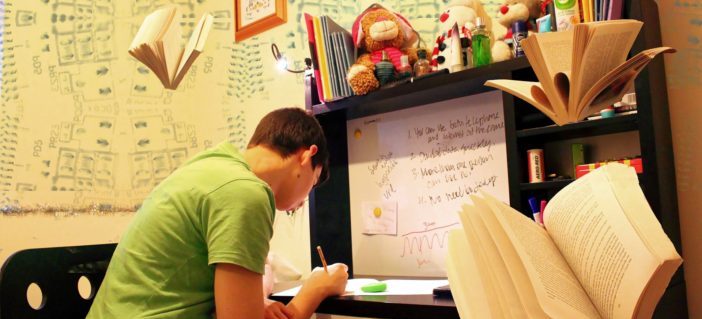Students in the Junior year are taking on the monumental task of being a Junior. With the month of May just at the onset, exams of all sorts are starting to take place. There is no doubt that students at this stage of high school are confronted with an enormous set of tasks. “There’s too much to do!” and “How do I prioritize?” and “How do I manage?” are all questions running through students’ heads. So what’s the big deal? Lots!
The Junior year is the linchpin to college applications. This is, for many students, the last set of grades many colleges will see when making decisions on applications, particularly if a student is applying under any Early scheme of admissions. While it is impossible to significantly raise one’s GPA, students can set a mark by showing the stuff they are made of this last term of the year.
“Why can’t I raise my GPA?” Well for one thing if you been in a school for the two or three previous years, a student (under a semester system) would have 5 semesters of GPA calculations weighing against one (if said student entered the school in Grade 9). A student who started in Grade 10, would have three semesters, but even still turning one’s intellectual jets on this last term can only marginally impact GPA. This is not to say that a student should throw in the towel. Absolutely, put the nose to the grindstone and nail those final exams. Lots of schools look to see improvement over time, maturity in taking school seriously and focus, even if it comes late in one’s high school career.
May is the month when not only final semester exams loom but also AP or AS Level exams start. Depending on what curricula a student is taking these exams are where a student shows the culmination of their work over the semester. However, students need to be aware that results on an AP or AS exam do not get calculated into GPA (some schools may do this but…), nor do they replace a poor grade in that class. (If that is the case, universities will wonder why you did so well on the exam, but what were you doing during class?).
These exams are important and a student should definitely focus on doing well. Managing one’s time, keeping organized and focusing on each exam is an important and sometimes daunting task. It is important to wisely spend one’s time going to review sessions with teachers, utilizing study groups, and ensuring competence in the subject areas you will be examined on. Never assume you know what you think you know. Double check, triple check and nail those exams!
May is also a time for SAT exams, another marker for university applications. For students who have been preparing since the October PSAT and a winter SAT (December or January) it is possible that this could be your final SAT, maybe. Depends on how you do, of course. Your college counselor should be able to let you know if you have one more test in your system, once results come back in a couple of weeks. However, it should be noted that most students do have one more test in them. This one is for the October SAT. (A reminder, a student should NEVER take more than 3 SAT I exams.) If you are an ACT student, the advice above also applies.
Hopefully, you are not in the situation where you have not taken an SAT yet. But if you are, it’s ok. This is an important SAT and it means that you have a fair amount riding on this test. Why is it an issue? Well for starters, this is going to be your baseline test. There is no other evidence to stand on to see where your scores will go, especially if you have not taken a PSAT or PLAN (the equivalent for the ACT). By just having this test, it challenges your college advisor to help with your list of schools.
If you are the unfortunate student who did not get the news that there is no longer any SAT I in June for International students, well ouch. If you have no previous tests under your belt, and are thinking of applying Early to a college, you now only have one chance (October) to perform well on the SAT. That is a very tough place to be. “But, my mock SAT/ACT tests show…” Mock tests are not the same. The materials are different, the setting is different, and the whole situation is completely different than taking the real deal. Most students outperform on practice tests. This is not evidence enough to rely on heavily, if at all.
June is a great time to take SAT II, but only if schools on your list require, recommend or state they are optional. There is no need to take an SAT II if you don’t meet the conditions above. By the way, performance on an SAT II definitely does not cover a poor grade. How could an hour-long exam equal a grade earned over a year?
Finally, as a Junior you need to be focusing on building your college list, starting your application essays – Common Application released the new Personal Statement essays last month. At very least, students should be brainstorming ideas on what they will write about.
So, yes, Junior year is a mass of things to get done. Don’t make the mistake of focusing on one item at a time. Divide your day up in to hours and tasks. Do a little bit of everything, every day.
As we enter this important season, work well, keep organized and with both of these things as a focus, you should be in great shape for summer!




